Samsung Portable SSD T5 Evo (8TB) review
Samsung T5 Evo: One-minute review
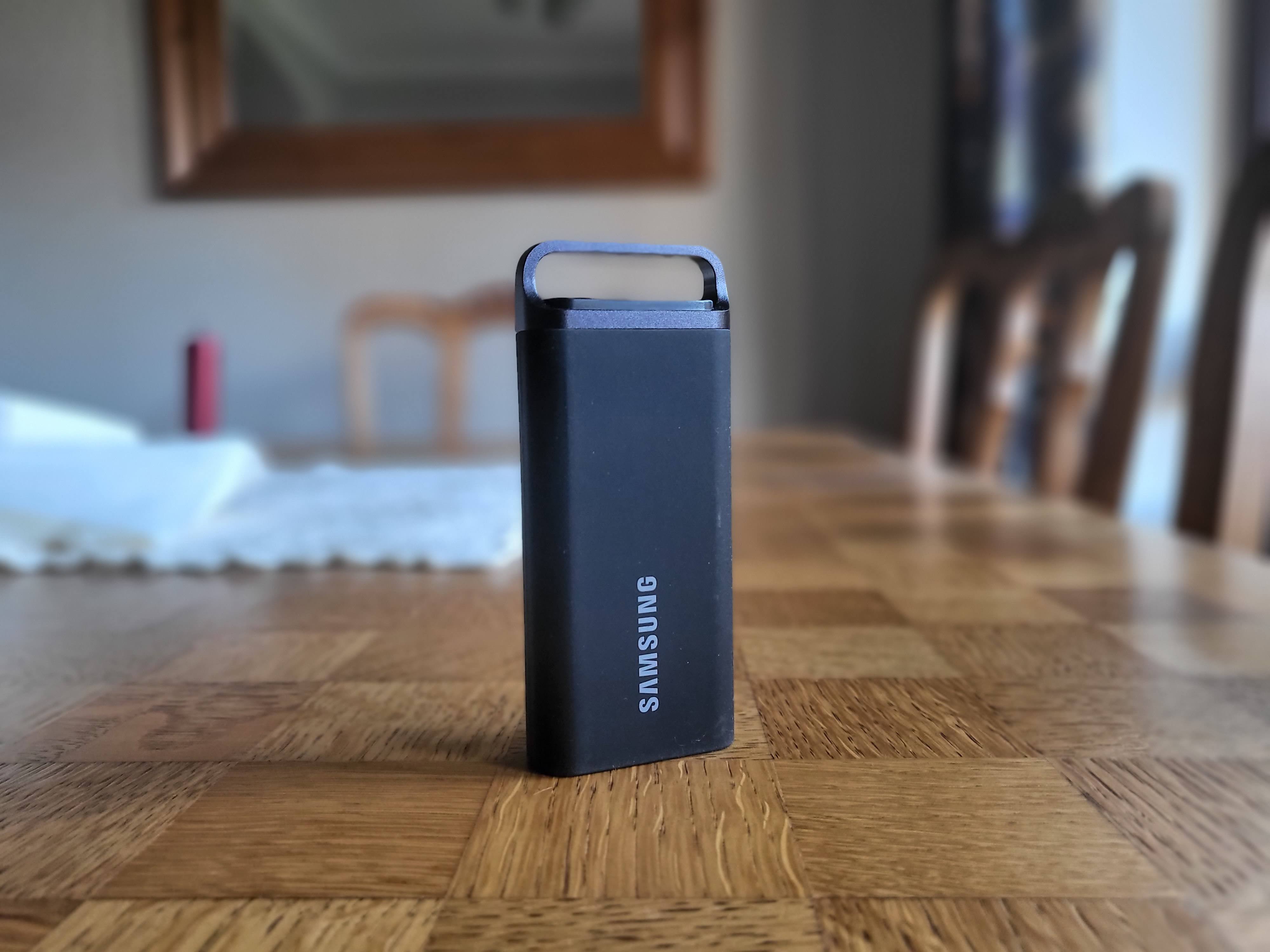
The Samsung T5 Evo 8TB portable SSD is the first of its kind, a storage device that has been designed from ground up to support this capacity - and potentially more in the future. It is very well designed - a clever mix of metal and rubber - especially with the integrated carry handle (Samsung calls it a ring) that makes it instantly likable.
It feels modern compared to its direct competition, eschewing the flat Kit-Kat shape design adopted by other players like Vectotech, Oyen Digital or Glyph, a legacy from the days of 2.5-inch SSDs. I like its long Type-C cable, the Samsung’s Magician SSD management software (with hardware encryption) and its three-year warranty but that’s where the good bit ends. This is a slow portable SSD and is especially poor value at the lower capacities (2TB and 4TB) with Samsung’s own T series, SanDisk and many others delivering far, far better value for money.
And speaking of price, its suggested retail price is shocking to say the least but Samsung has cleverly positioned the 8TB as an external HDD replacement. The marketing literature reads “T5 Evo is an optimal product to replace external HDDs in all aspects, including performance, durability, compatibility, compact design and high capacity”. So, with the 8TB model at least, the T5 Evo delivers just enough value for money in order for the target audience, creative professionals.
Bear in mind as well that it doesn’t carry any IP or MIL-STD ratings; so make sure it doesn't get wet, it is not a water resistant device. While it may not act as the best rugged hard drive, it still feels reasonably solid but be aware of this limitation. It is difficult to recommend the T5 Evo at this price, just under $650, about twice that of the 8TB Samsung 870 QVO (albeit internal) and there are other cheaper alternatives that will perform just as well. As such, the drive won’t enter our best portable SSD buying guide without a significant drop in price.
Samsung T5 Evo: Pricing and availability
- How much does it cost? $650
- When is it available? Now
- Where can you get it? In the US, UK, Australia and other territories
Ultra large capacity SSDs are far and few between because they tend to be far more expensive and the market for such drives is very small compared to smaller capacities (2TB or 4TB).
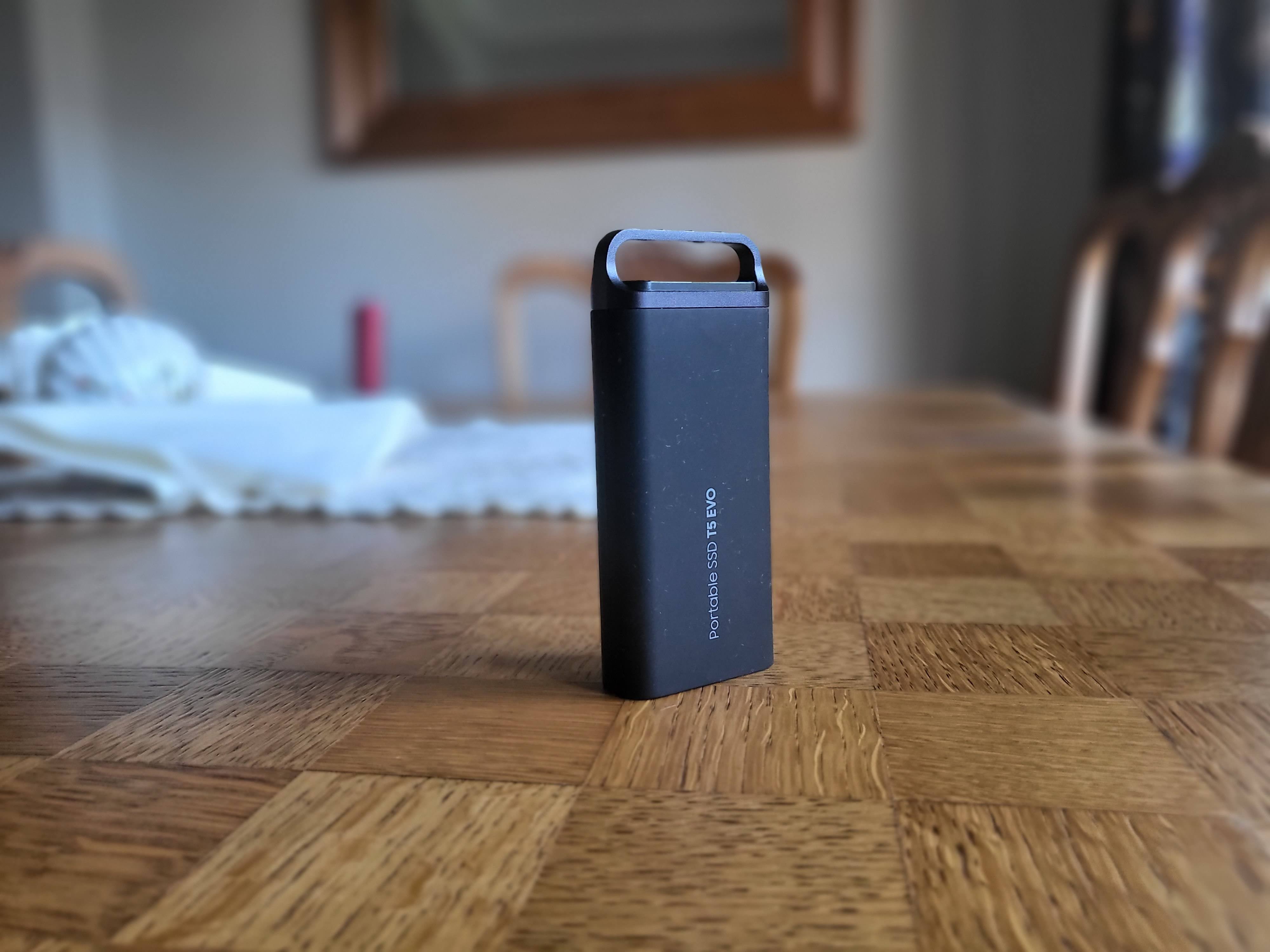
Samsung T5 Evo: Design
The components inside the T5 Evo are housed in a metal enclosure (unibody aluminum) and wrapped in a rubber sleeve. There’s a blue LED indicator and a Type-C port. The portable SSD itself is heavier than expected at 102 grams (0.23 pounds) and far larger as well. At 17mm (0.67 inches) thick and 95mm (3.74 inches) long, I’d find it a bit more difficult to slip in my jeans’ pockets. The package includes a 46cm Type-C to Type-C cable and there’s no adaptors should you want to use it with a traditional Type-A connector.
A tear down carried out by our sister publication, Anandtech, showed that the drive looks like a repackaged 870 QVO, which costs about half the price and uses cheaper QLC NAND chips (as opposed to more expensive but more resilient TLC). Check out the review carried out by another of our peers, Tomshardware.
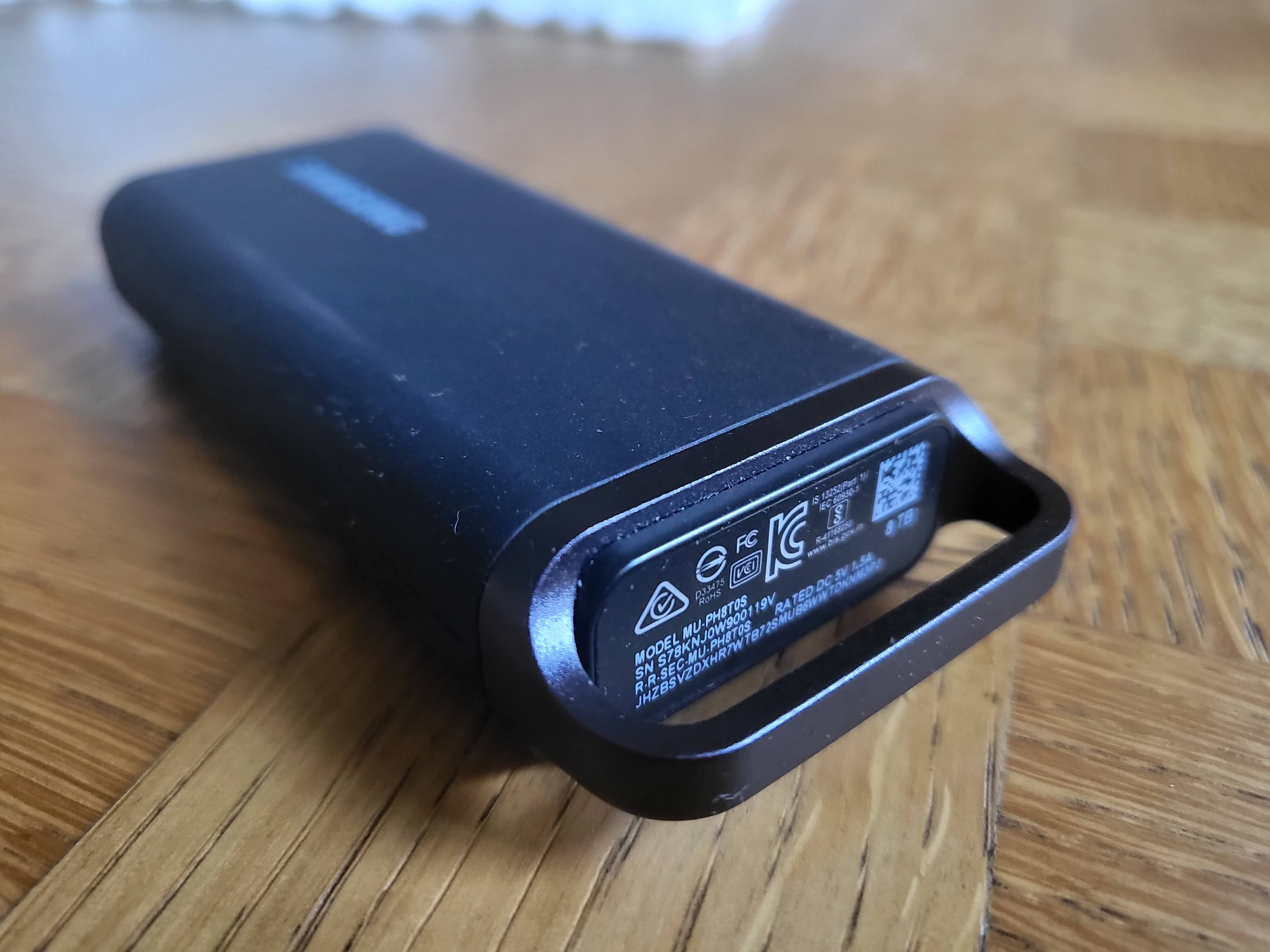
Samsung T5 Evo: Benchmark
The T5 Evo is one of the slowest portable SSD we’ve tested in recent times. It is something Samsung is very open about unlike some of its competitors.
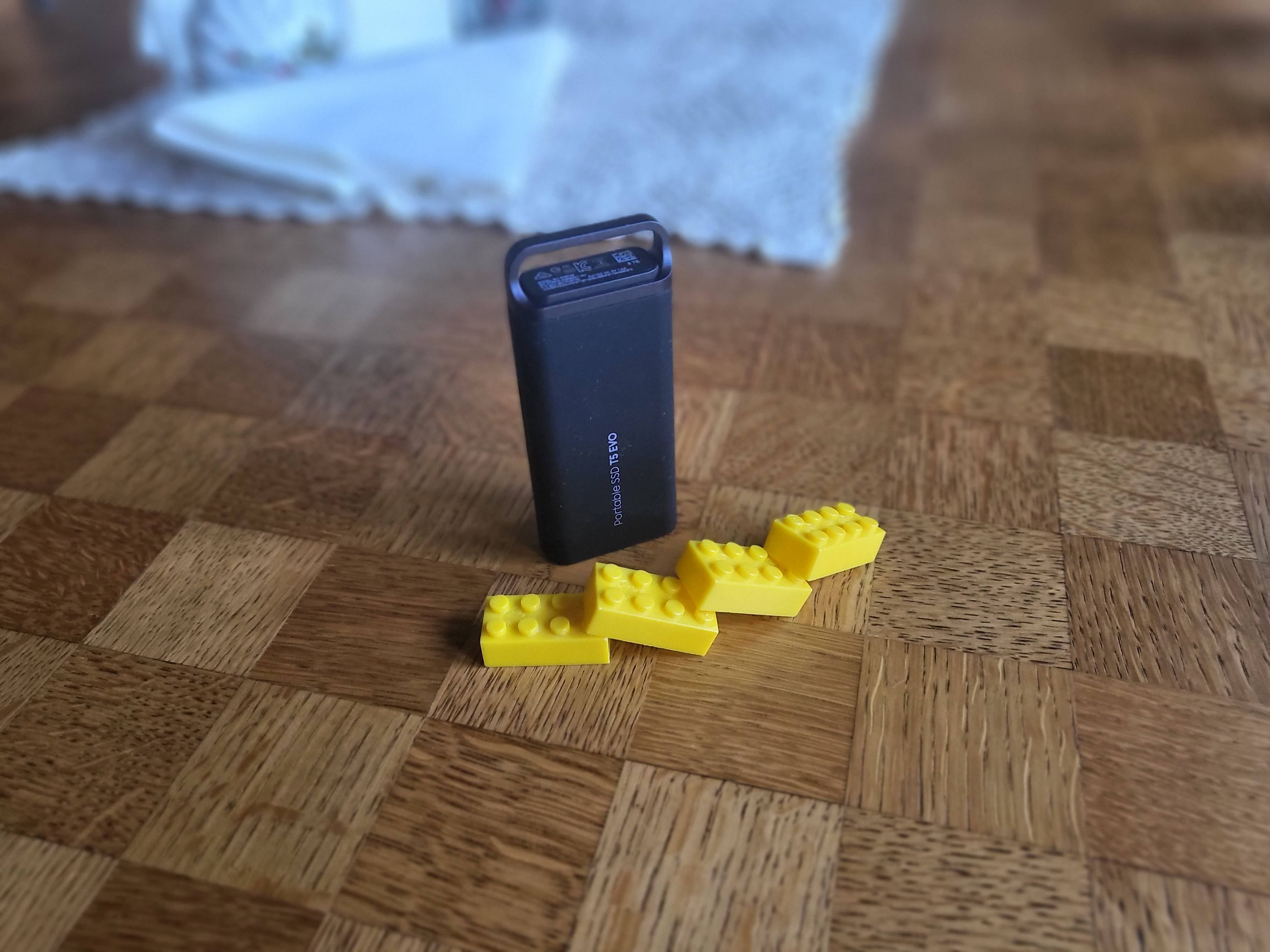
Samsung T5 Evo: Specs
Should I buy the Samsung Portable SSD T5 Evo?
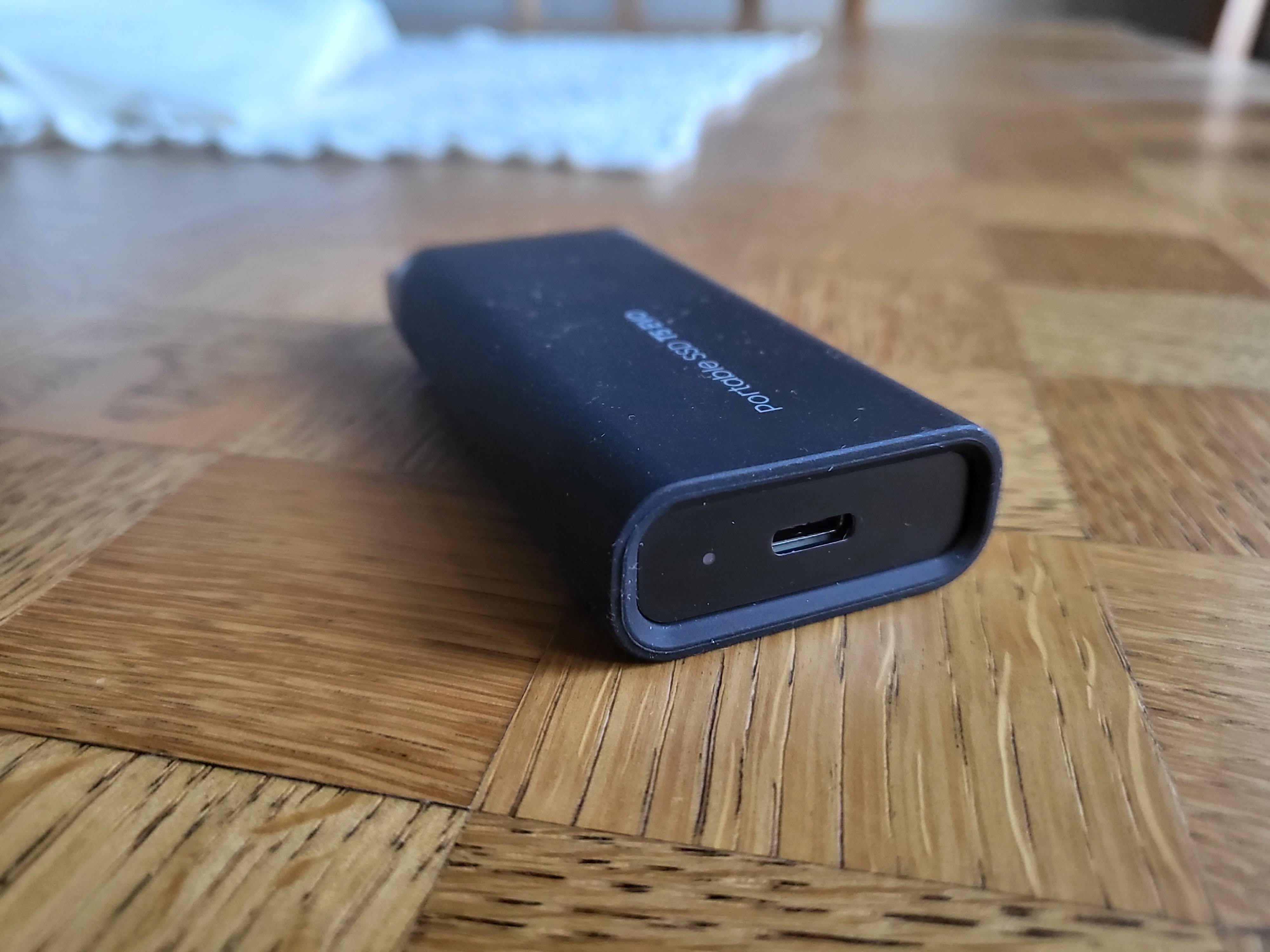
Samsung Portable SSD T5 Evo alternatives
There are at least three other 8TB SSD, widely available on the market - the Oyen Digital U32, Vectotech, and Titanium One - all being cheaper than Samsung’s T5 Evo. The Titanium One is the one we’d go for since it comes with an IP rating. If you need a faster SSD, you can either build one yourself (using a compatible NVMe enclosure and an off-the-shelf SSD) or go for a PCIe-based model that will cost you nearer to $1,000.

How I tested the Samsung Portable SSD T5 Evo
After having formatted the T5 Evo to exFAT, I test it the same way I test other storage components (external HDD, microSD cards etc) using my trusty Honor Magicbook 14 2022. I use the latest versions of CrystalDiskMark, Atto, AS SSD and AJA benchmarks, noting the best scores achieved in each. They are all free and can be downloaded by anyone. I then transfer a folder of files, roughly 10GB in size, to get a rough idea of real life performance.
0 comments:
Post a Comment